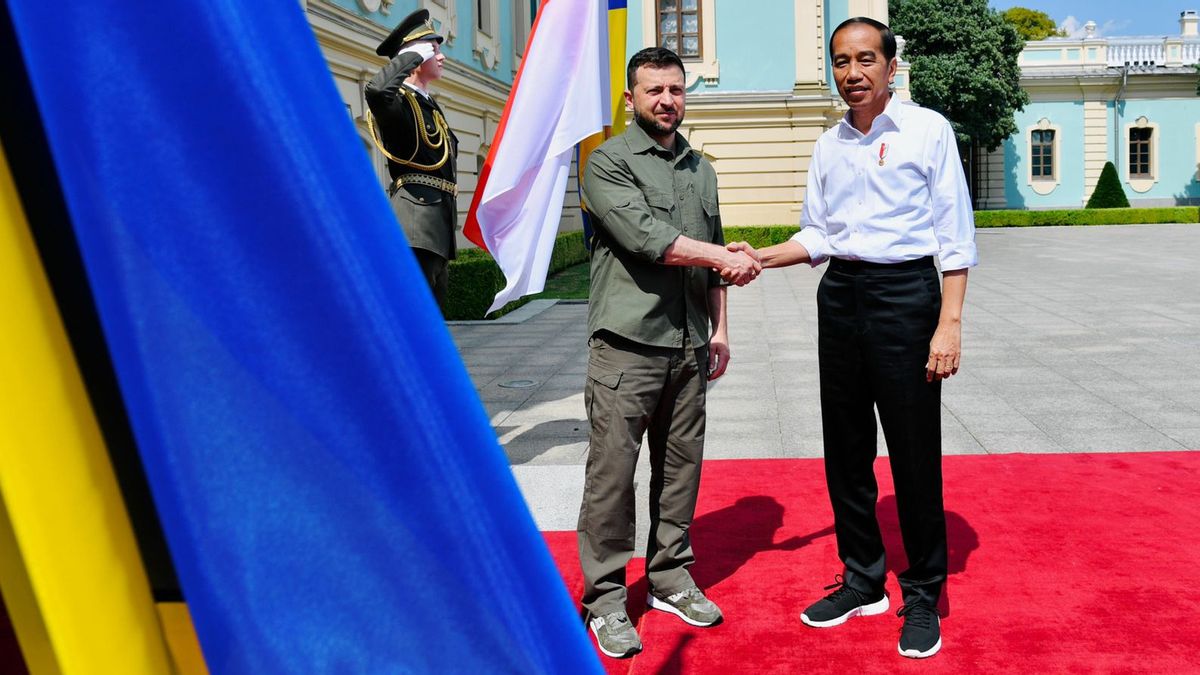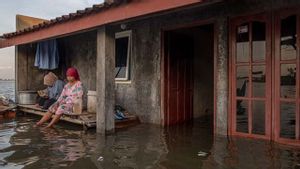JAKARTA - The world is experiencing gloomy times. The hope to return to normal after the COVID-19 pandemic that hit the last two years seems to have not materialized. Some people predict there will be no significant changes in 2023. In fact, it tends to be worse than before if you look at the risks of recession and instability in the world's economic conditions, as well as the current geopolitical conditions.
Look at the Ipsos report titled Global Predictions for 2023. The multinational market research company and consultant headquartered in Paris, France conducted a survey of 24,471 adults spread across 36 countries, including a number of countries in Europe, America and Asia, including Indonesia.
On average, only 46 percent of respondents are optimistic that the global economy will improve in 2023. The rate has fallen far compared to the previous year, when 61 percent of respondents believed the economy would improve after the new year.
People in Belgium are the most pessimistic about the economy. At least 27 percent hope to see improvements. Meanwhile, in China and the UAE the majority choose to be careful, "wrote Ipsos in its report released in mid-December 2022.
Most respondents with a percentage above 70 percent rated that the cost of living would continue to increase, inflation tended to move up, and interest rates would shot up sharply. As a result, the number of world unemployed is likely to increase in 2023.
However, according to Alexander Tziamalis, senior economist from Sheffield Halam University, inflation is likely to decline slightly globally in 2023. If the previous period reached 8.8 percent, by 2023 it could drop to 6.5 percent according to the International Monetary Fund (IMF) predictions.
For developing countries, the projected decline is likely to be very low, still around 8 percent.
"Even so, the inflation rate will remain 2 percent higher than the stipulation of a number of central banks which are often used as world monetary benchmarks," Tziamalis told Al Jazeera.
Likewise with geopolitical and security conditions in 2023. According to the Ipsos report, the concerns of respondents regarding the war and the use of nuclear weapons are quite large. Especially, when you look at the endless Russian-Ukraine war.
Russian President Vladimir Putin has shown no desire to step down from his war goals. As Putin said earlier this month, the conflict will turn into a long-term process.
On the other hand, the Ukrainian army is also getting more aggressive. He launched a counter-attack and reportedly has managed to retake a number of areas such as Kharkiv and Kherson.
Not to mention international tensions in the Asia Pacific region and the behavior of a number of countries that often show off nuclear weapons.
The conflict resolution has raised concerns about the use of nuclear weapons. Nearly half or about 48 percent of respondents feel this is a possible scenario. This anxiety is very high in Indonesia (69 percent) and Peru and Colombia (both 62 percent)," wrote Ipsos.
Deputy Chairman of the Security Council of the Russian Federation, Dmitry Medvedev, even published more worrying predictions. According to him, not only in Ukraine or the Asia Pacific region, other tensions leading to a military invasion will also occur in other hemispheres in 2023.
Medvedev guessed a war between Germany-France and civil war in the United States. There are 10 Medvedev predictions that he tweeted on Twitter on December 27, 2022, namely:
On New Year's Eve, everyone made predictions. Much has emerged with futuristic hypotheses as if competing to choose the wildest, and even the most absurd. This is our simple contribution to what could happen in 2023, "wrote Medvedev, former Russian President 2008-2012.
Various indicators show that Indonesia's economic performance is still able to survive the deep economic turmoil. In the second quarter of 2022, the Indonesian economy grew by 5.44 percent and in the third quarter of 2022 it was even able to grow better, namely at 5.72 percent.
Another indicator is that Indonesia's trade volume also shows growth of up to 58 percent. Indonesia's trade balance also recorded a surplus for 30 consecutive months.
Even so, President Joko Widodo (Jokowi) asked his staff to remain careful in dealing with the world economic situation in 2023. All policies related to the livelihoods of many people must be calculated, especially regarding food.
"Don't let our calculations be wrong so that we don't prepare resources, reserves. And at a reserve point (rice) we run out and are seen by traders, and finally the price of rice will definitely go up," Jokowi said in a plenary session on the Conditions of the Economy in 2023, Evaluation of Handling COVID-19 and Food and Energy Security at the State Palace on December 6, 2022.
Regarding the geopolitical situation, not only through official visits to warring countries, Jokowi also directly revealed the peace mission in official forums. Among other things at the G20 Summit in Bali last November.
Jokowi invites world leaders to further implement the paradigm of collaboration. All have a responsibility, not only for their own citizens, but also for the world community.
Being responsible here means we have to end the war. If war doesn't end, it will be difficult for the world to move forward. If war doesn't end, it will be difficult for us to be responsible for the future of the present generation and future generations. We shouldn't divide the world into parts. We shouldn't let the world fall into a cold war anymore," added Jokowi.
The English, Chinese, Japanese, Arabic, and French versions are automatically generated by the AI. So there may still be inaccuracies in translating, please always see Indonesian as our main language. (system supported by DigitalSiber.id)













